What is the x402 Protocol? Understanding the 5 Core Advantages of HTTP-Native Payment Standards
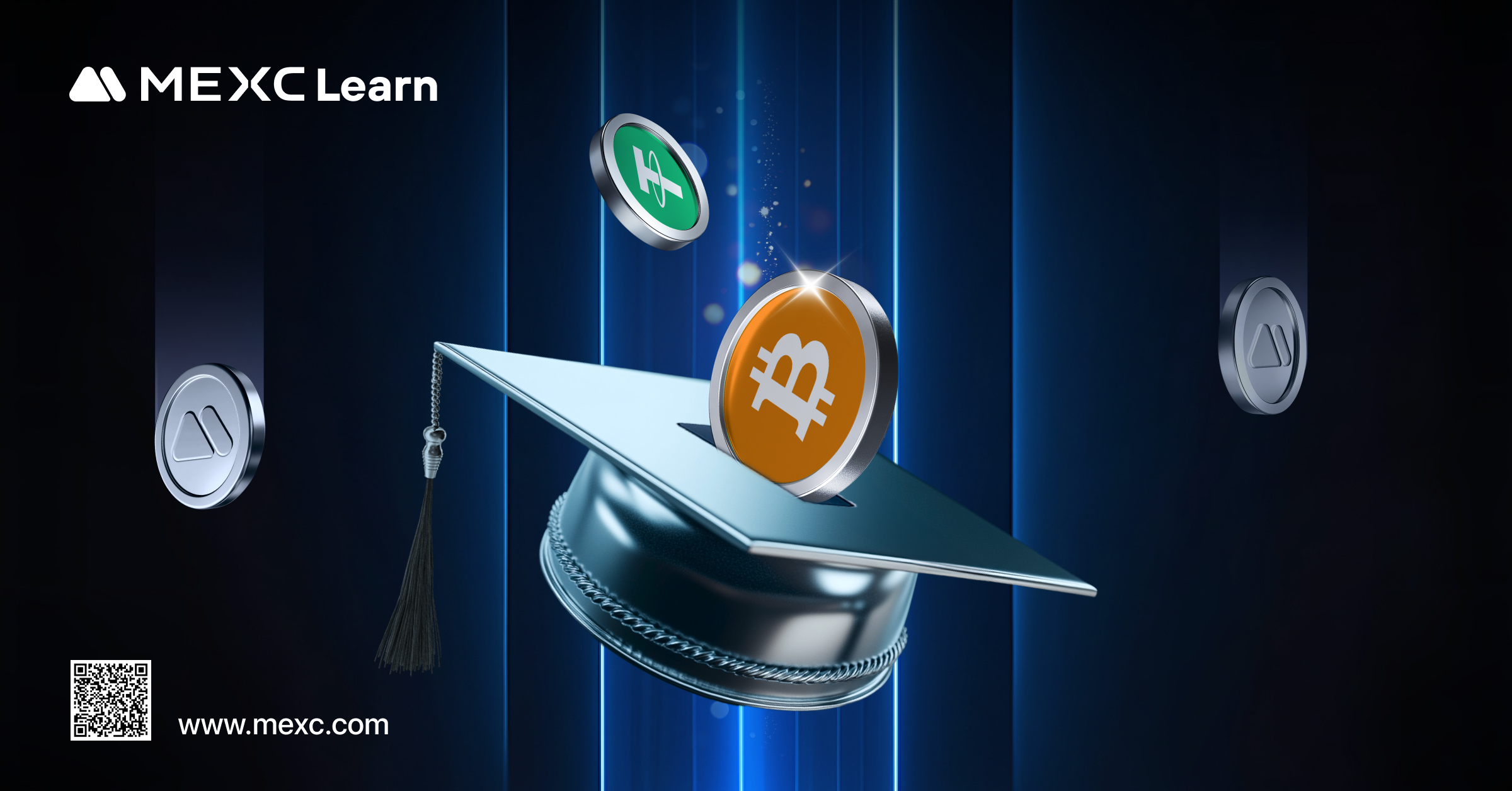
TL;DR
1. What is the x402 Protocol
1.1 What is HTTP 402
- Notify the client (buyer or agent) that payment is required
- Communicate payment details such as amount, currency, and destination address
- Provide information needed to programmatically complete the payment
1.2 Why x402 Protocol Uses HTTP 402
- Machine-to-machine (M2M) payments (e.g., AI agents)
- Pay-per-use models, such as API calls or paywalled content
- Micropayments without requiring account creation or traditional payment methods
2. Five Core Advantages of the x402 Protocol
2.1 Zero Protocol Fees
2.2 Instant Settlement
2.3 No Account Registration Required
2.4 Blockchain-Agnostic Design
2.5 Minimal Implementation
3. x402 Protocol vs. Traditional Payment Methods
Comparison Dimension | Traditional Payment Methods | x402 Protocol |
Settlement Speed | 1-3 business days | Approximately 2 seconds |
Transaction Costs | Typical credit card fees of 2.9% + $0.30 | Zero protocol fees, only minimal blockchain gas costs |
Implementation Complexity | Complex merchant accounts, PCI compliance, extensive integration work | Single-line middleware or configuration |
User Experience | Account creation, personal information, saved payment methods | Direct payment, no registration, complete privacy |
Minimum Viable Transaction | Approximately $1 due to fixed fees | Fractions of a cent economically viable |
International Payments | Currency exchange fees, longer settlement times | Borderless, uniform fast settlement |
Ideal Use Cases | Manual checkout processes, subscription billing, consumer transactions requiring fraud detection | Machine-to-machine payments, micropayments, pay-per-use APIs, crypto-native applications |
4. Real-World Applications of the x402 Protocol
4.1 Autonomous Payments for AI Agents
4.2 Account-Free Cloud Storage
4.3 Content Creator Monetization
4.4 Developer API Monetization
5. How to Trade x402 Protocol Tokens on MEXC
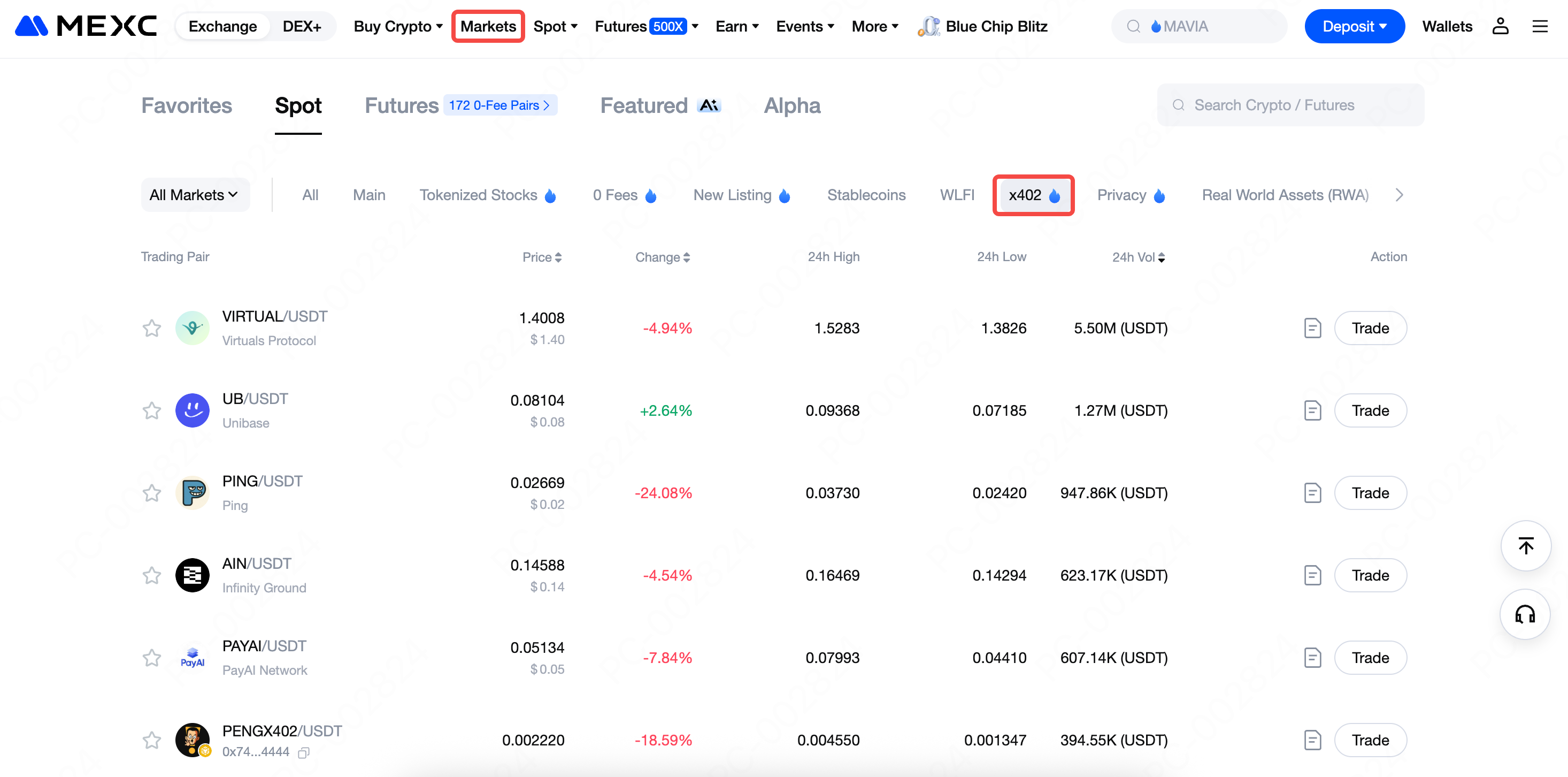
6. Future Outlook for the x402 Protocol
Recommended Reading:
Popular Articles
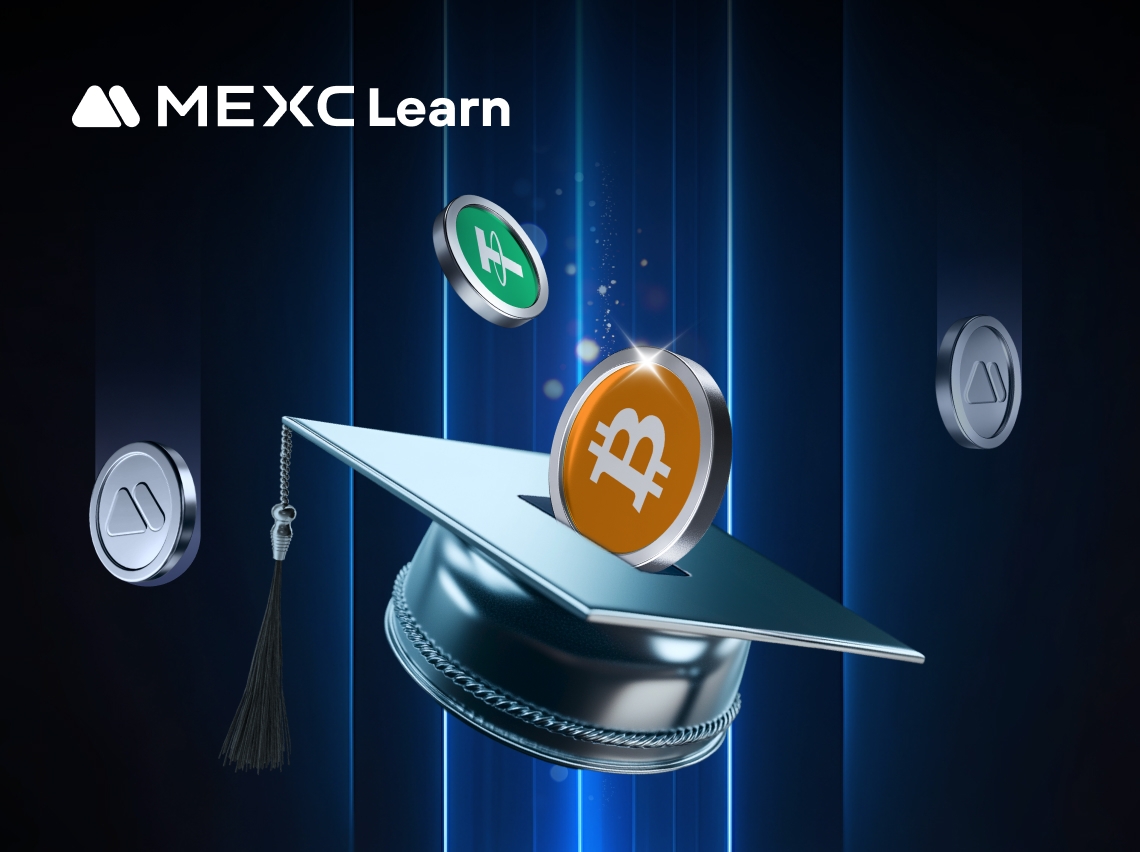
Bitcoin (BTC): Complete Guide to the World’s First Cryptocurrency
Bitcoin has transformed from an experimental digital currency worth fractions of a penny to a revolutionary financial asset reaching new record highs in 2025. As the world’s first cryptocurrency, Bitc
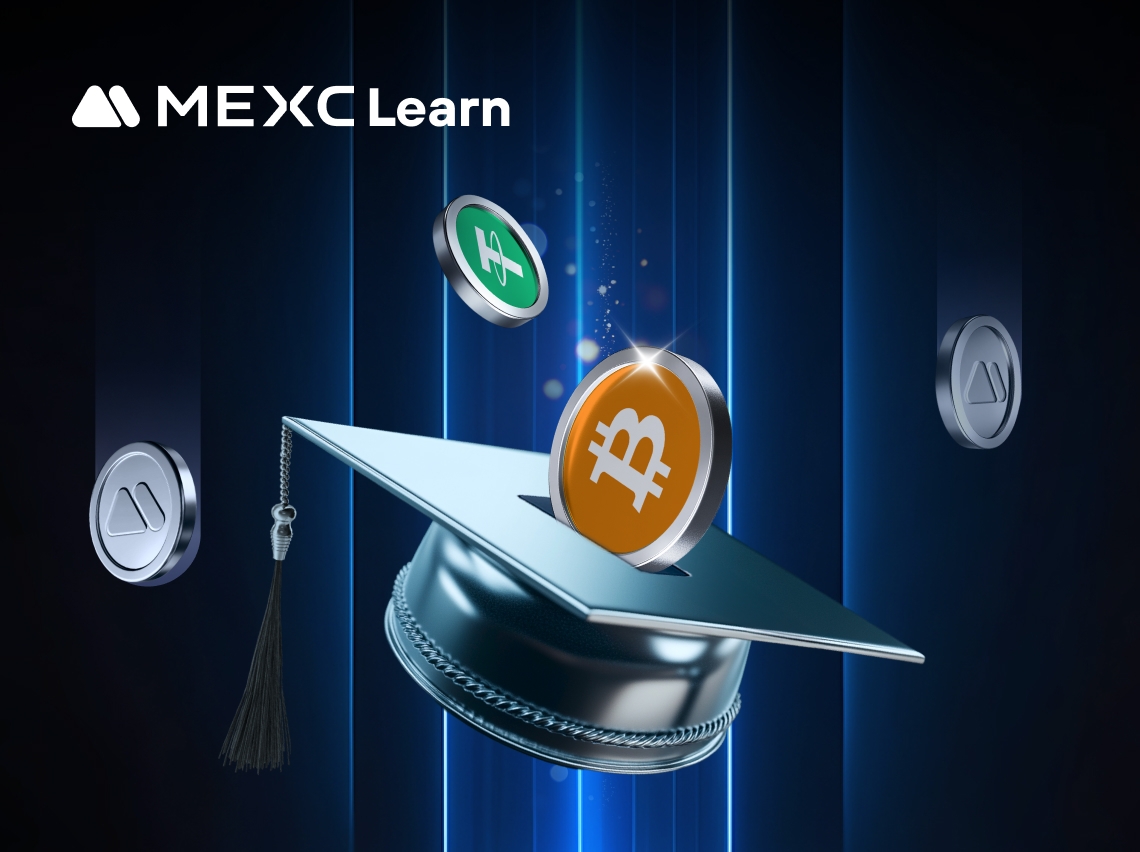
What is Ethereum and How Does it Work? Complete Guide to ETH Price and Investment
Ethereum stands as the world’s second-largest cryptocurrency by market capitalization and the foundational platform powering the decentralized web revolution. This comprehensive guide explores everyth
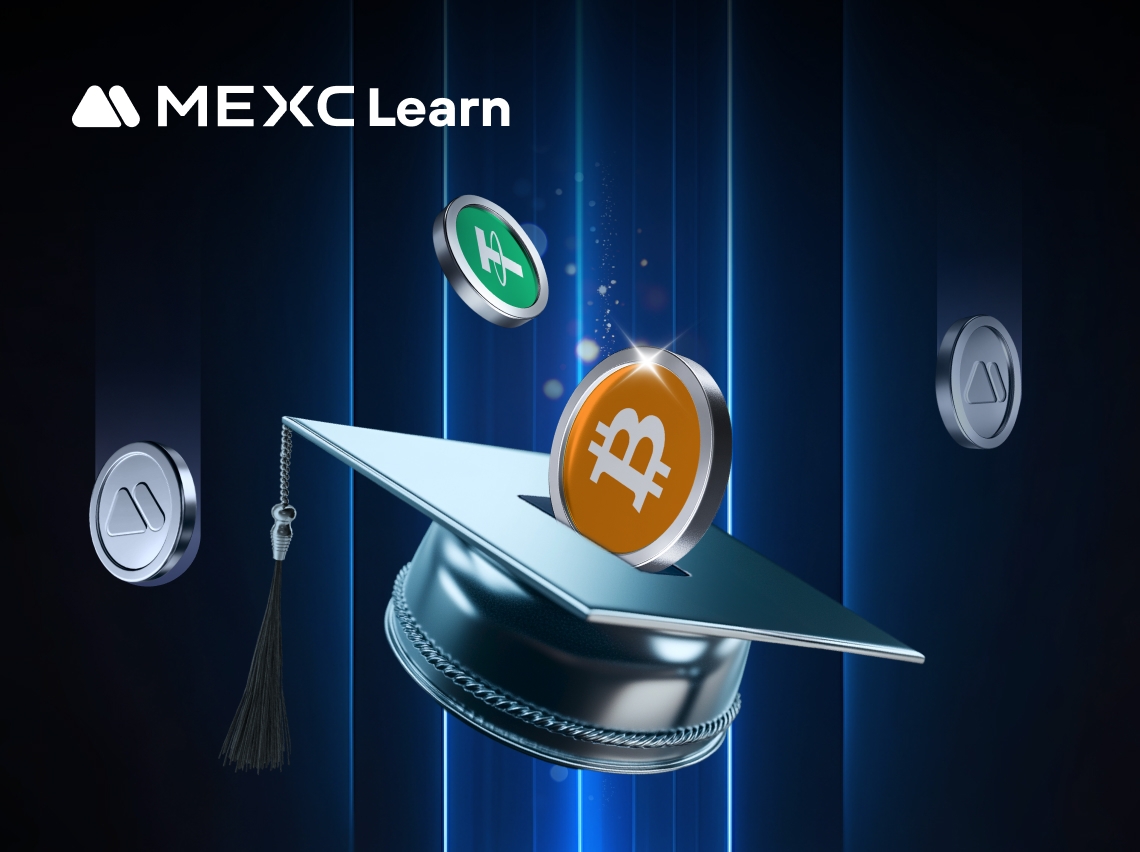
What is XRP? Complete Guide to Ripple’s Cryptocurrency and Prediction
XRP stands as one of the world’s largest cryptocurrencies, currently ranking as the 3 digital asset by market capitalization with over $180 billion in total value. Unlike traditional cryptocurrencies
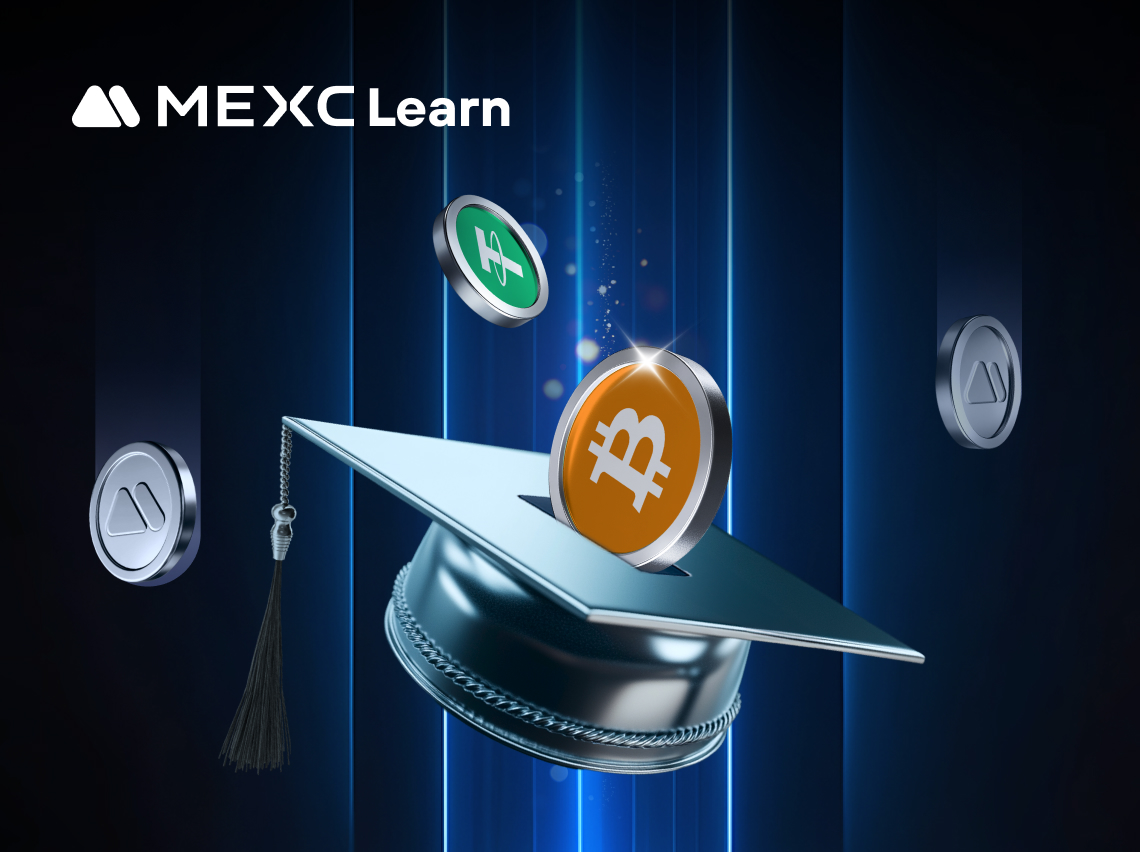
What is Virtuals Protocol ($VIRTUAL)? x402 Agent Commerce Protocol and AI Agent Economy
TL;DR1)Virtuals Protocol is an on-chain infrastructure for the “Agentic Economy,” enabling AI agents to autonomously trade, collaborate, and create value through standardized blockchain commerce.2)Its
Hot Crypto Updates
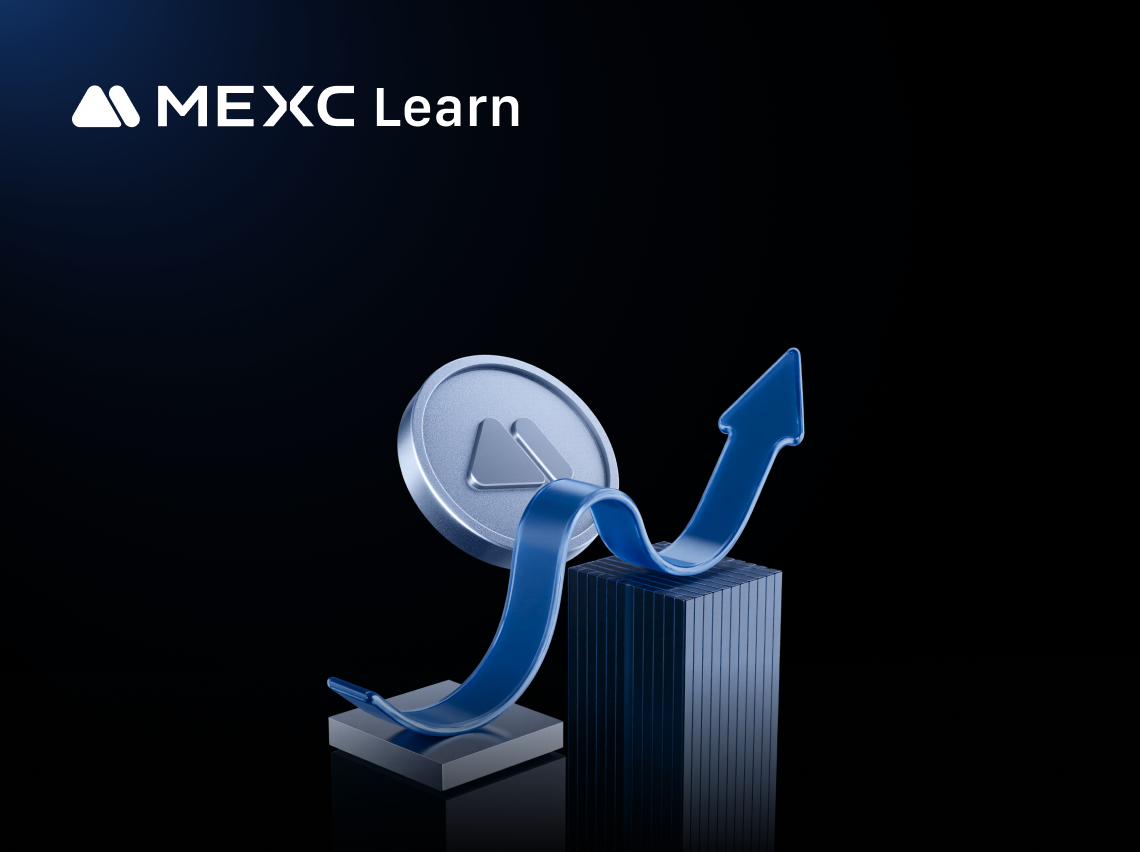
BitcoinOS (BOS) Price: Market Updates and Trends
The BitcoinOS (BOS) price reflects how the token is performing in today's fast-moving crypto market. In this article, we'll review its current value, recent performance, and the factors shaping BOS's
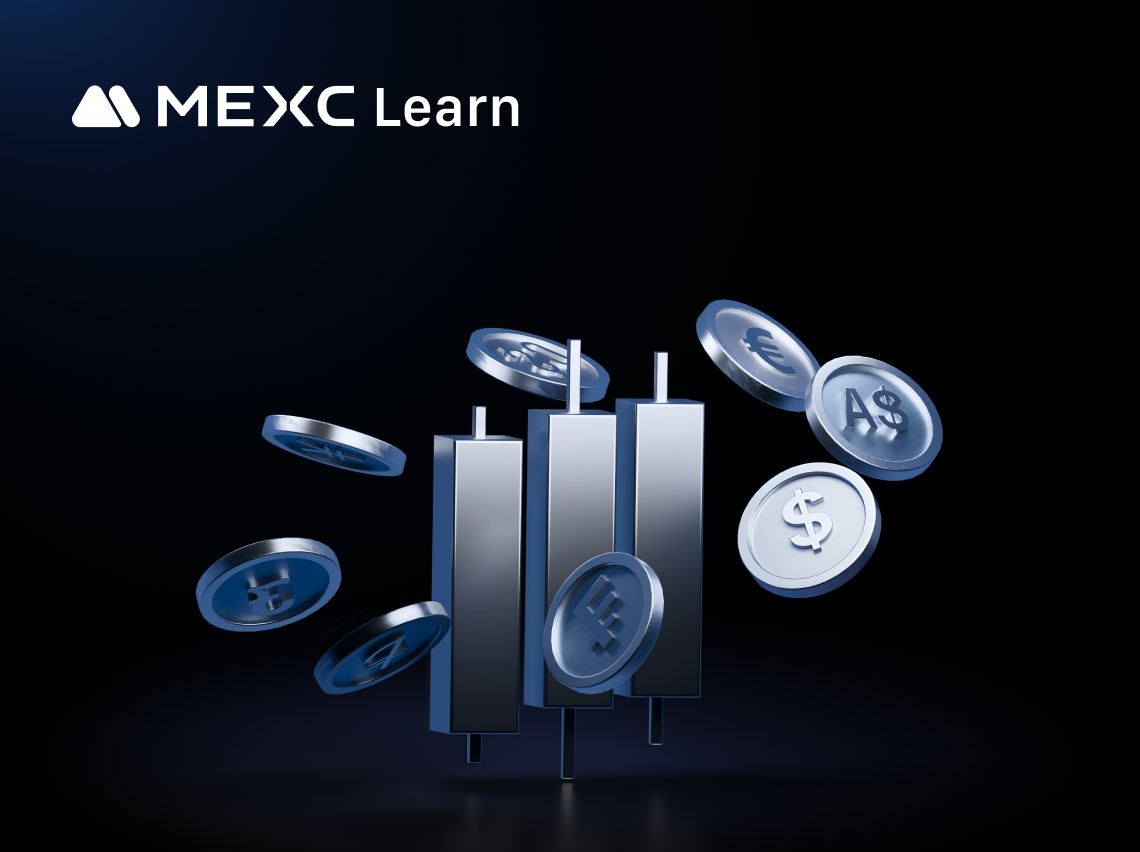
BitcoinOS (BOS) Overview: Unlocking Bitcoin's Potential
BitcoinOS (BOS) is an innovative project designed to enhance Bitcoin's capabilities by integrating zero-knowledge proofs and smart contract functionality. This article will explore BOS's key milestone
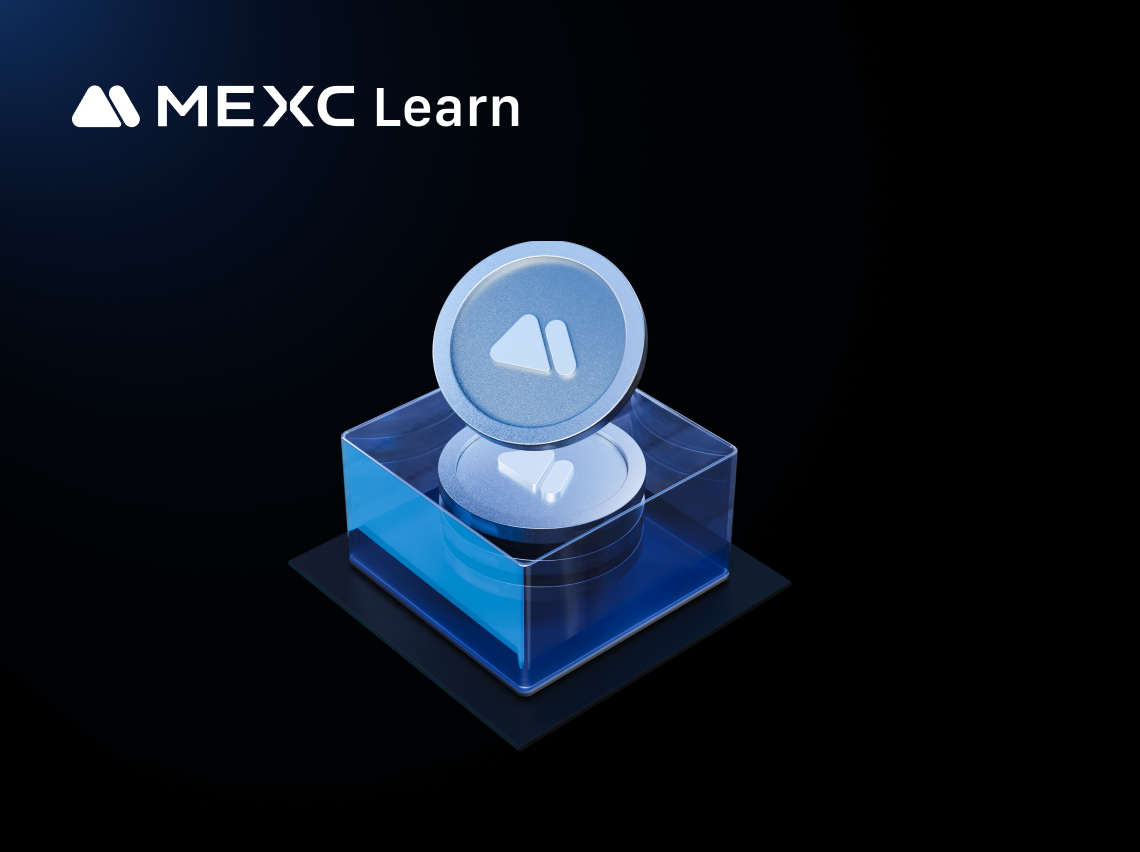
BitcoinOS (BOS) Real-Time Price and Market Analysis
The crypto market moves fast, and the live BitcoinOS (BOS) price helps traders stay up to date. This article highlights today's trading price, short-term performance, and the main factors influencing
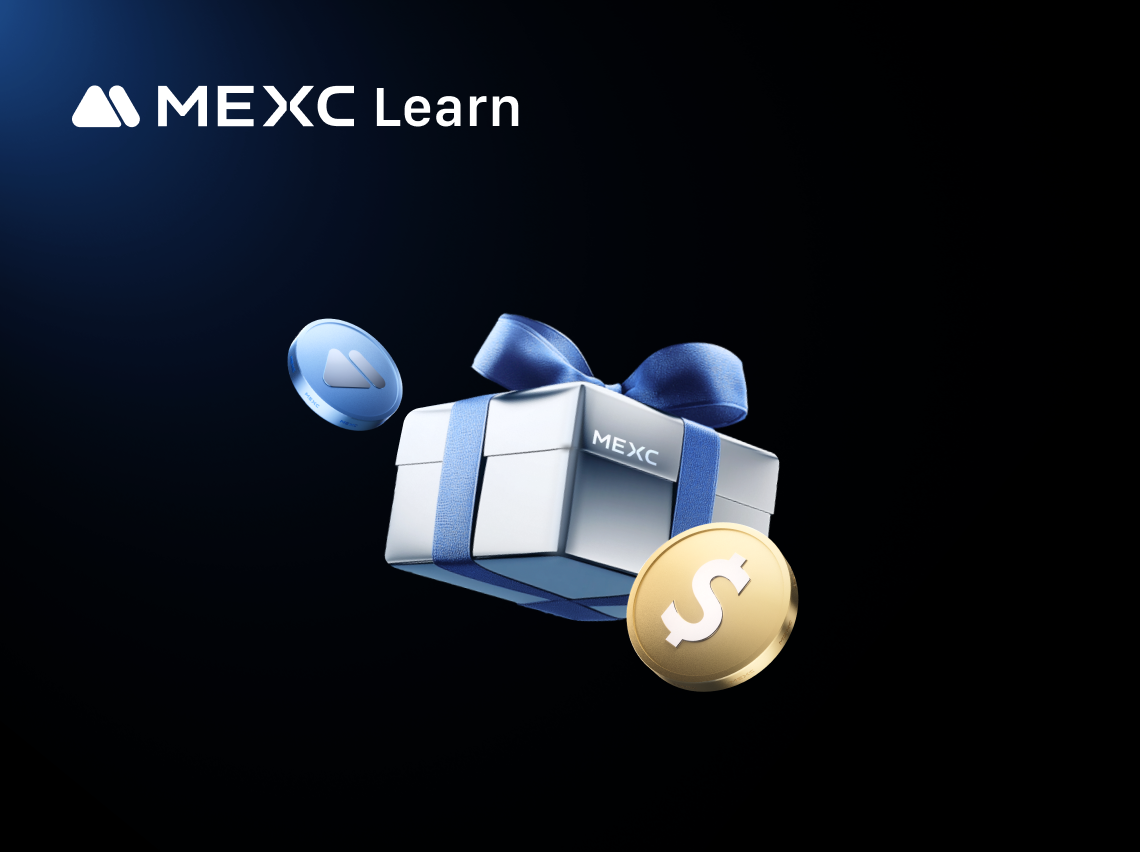
BitcoinOS (BOS) Real-Time Price and Market Analysis
The real-time BitcoinOS (BOS) price gives traders immediate visibility into market shifts as they happen. This article examines the token's current real-time value, short-term volatility, and how trad
Trending News
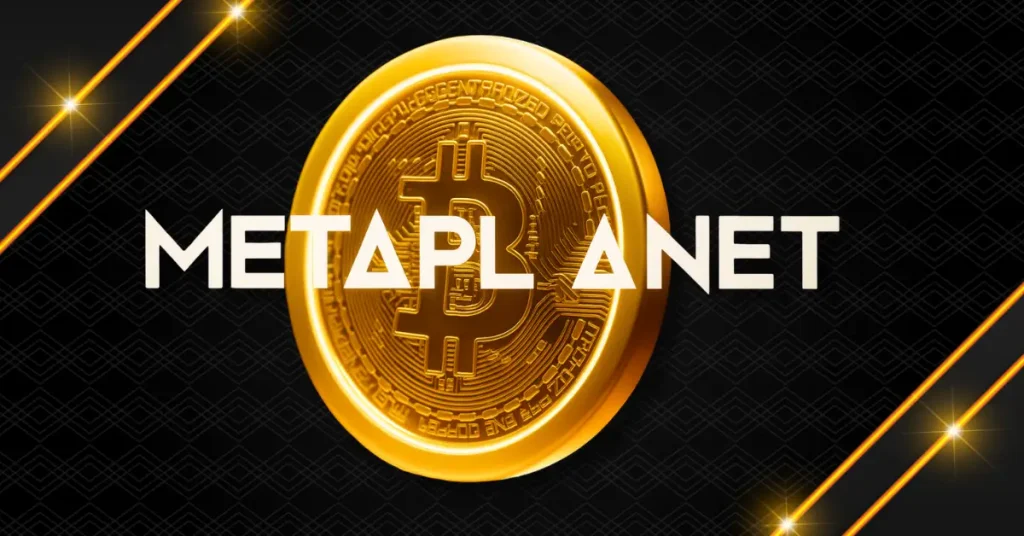
Metaplanet Announces ¥75B Share Buyback Program to Strengthen Bitcoin Strategy
The post Metaplanet Announces ¥75B Share Buyback Program to Strengthen Bitcoin Strategy appeared first on Coinpedia Fintech News Metaplanet, widely known as “Japan’s MicroStrategy”, has taken a major

Ethereum's Fusaka upgrade moves to December, blobs to double after
Ethereum's core developers have agreed to ship the Fusaka hard fork on Dec. 3, introducing 12 EIPs to boost scalability, security and cut costs. Ethereum’s core developers have selected early December
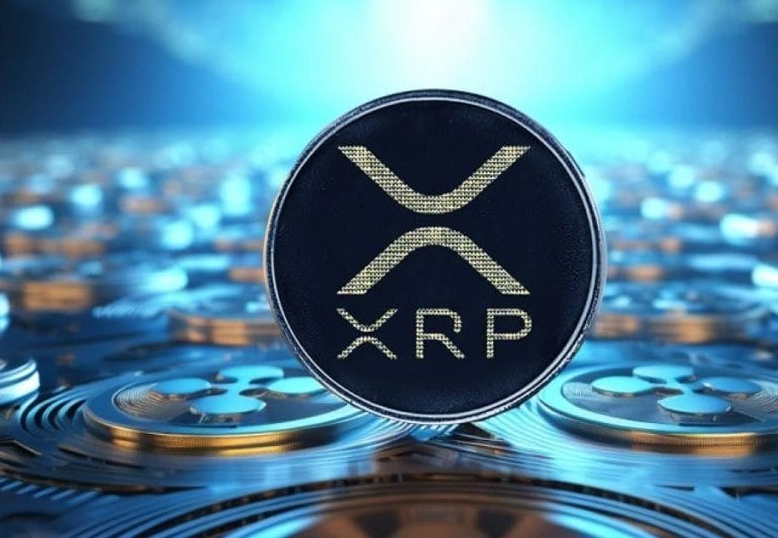
While the Launch Date for Solana (SOL), Litecoin (LTC), and HBAR ETFs is Finalized, Why Isn't XRP Available? Experts Evaluate!
Bloomberg analyst Eric Balchunas said Solana, Litecoin, and HBAR ETFs are scheduled to list on October 28-29. Why not XRP? Continue Reading: While the Launch Date for Solana (SOL), Litecoin (LTC), and

Seedify $SFUND bridge suffers $1.2M hack affecting 64k BNBchain users
The post Seedify $SFUND bridge suffers $1.2M hack affecting 64k BNBchain users appeared on BitcoinEthereumNews.com. Key Takeaways Hackers exploited a vulnerability in a cross-chain bridge contract, st
Related Articles
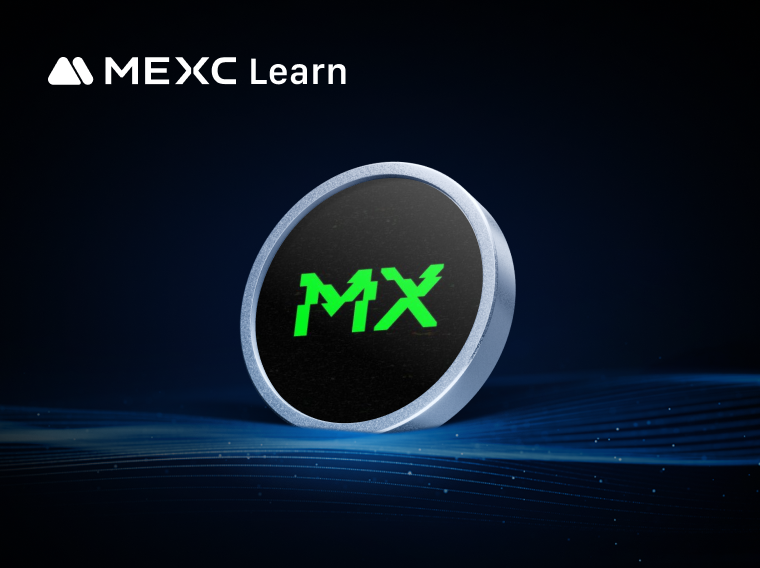
What is MAITRIX (REDACTED)? A Stablecoin Protocol for Decentralized AI
TL;DR1) MAITRIX: An intelligent stablecoin protocol for decentralized AI, aiming to serve as the foundational DeFAI financial infrastructure layer.2) Dual-Layer Architecture: Composed of a Stablecoin
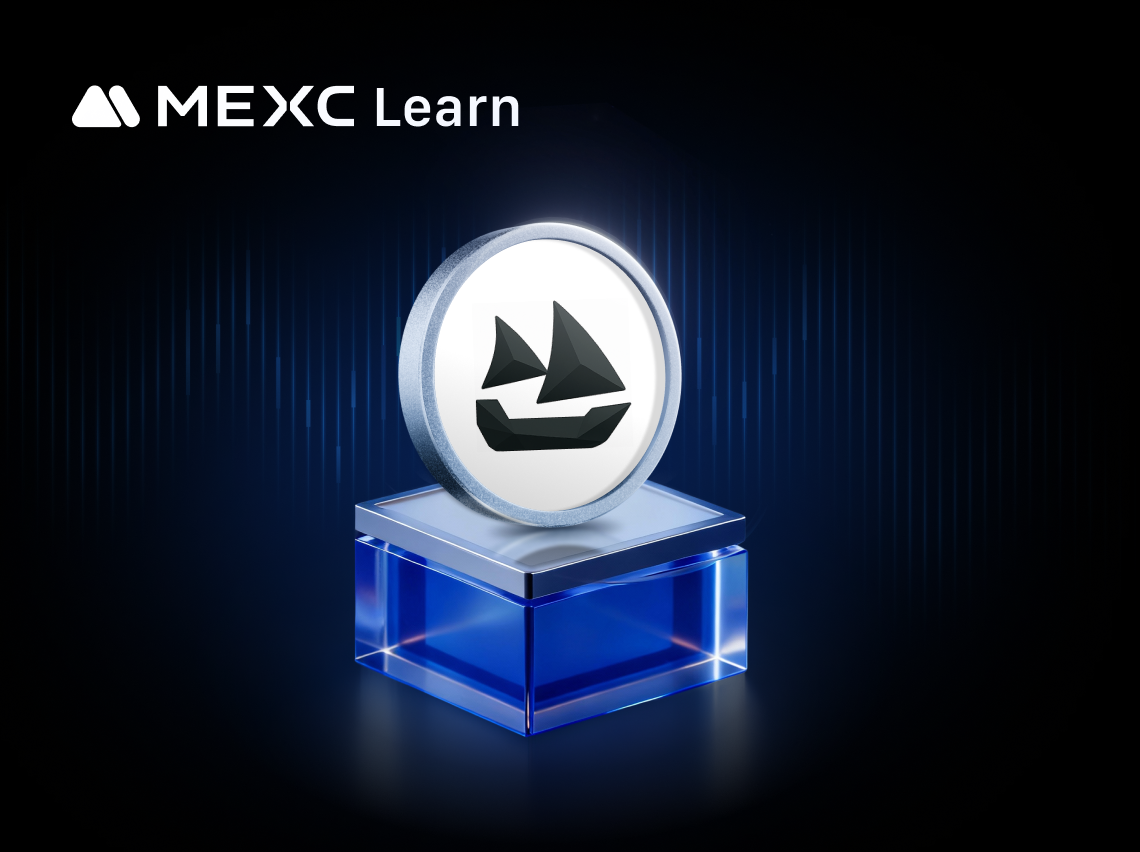
What is Ventuals? The First On-Chain Derivatives Protocol for Private, Pre-IPO Company Valuations
TL;DR1) Ventuals is the first on-chain perpetual futures protocol built on the HIP-3 standard, enabling long and short trading on the valuation of private, pre-IPO companies.2) vHYPE serves as the cor

What is a Decentralized Exchange?
Based on data from holder.io, the total market capitalization recently reached trillions of dollars. Well-known exchanges such as MEXC, Binance, Coinbase, and others fall under the category of central

Reshaping Cross-Border Finance: Unitas Foundation and the USD1 Token Ecosystem Explained
As blockchain technology continues to mature and address real-world economic challenges, the global financial landscape is undergoing a paradigm shift. Among the emerging solutions, the Unitas Foundat
